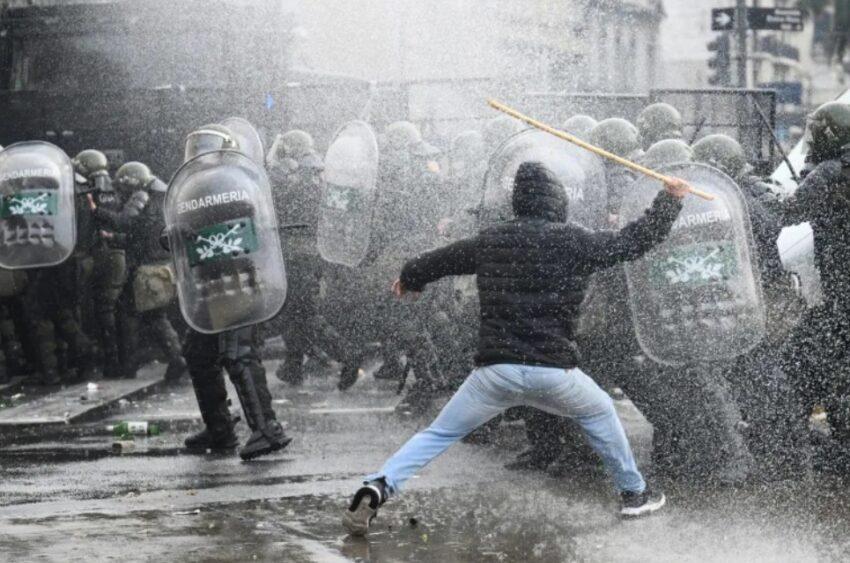
Violent clashes between law enforcement and protesters in Buenos Aires on Wednesday marred the debate in the Senate of a package of reforms called for by far-right President Javier Milei.
The violence began when protesters tried to break through the security cordon set up around the Chamber of Deputies, where the so-called “omnibus” law must return if the senators approve it. Seven people, including five opposition MPs, were treated in hospital.
Cars were set on fire and the police responded to projectiles by firing rubber bullets and water cannons. At least 10 people were arrested and nine police officers were injured. By nightfall, the forces of law and order were finally taking control of the streets.
The Argentine Presidency denounced “the terrorist groups that, with the help of sticks, stones and even grenades, have tried to perpetrate a coup d’état”.
Senators debated since Wednesday morning the new version of the Milei government‘s flagship law, rejected in its original form of 600 articles, and adopted with major changes to 238 articles by the Chamber of Deputies in April.
The reform was adopted Wednesday evening by the Senate, which approved its revised draft. Among the concessions of an executive that has become more pragmatic over the months: the number of privatizations has gone from about 40 in the initial version to less than 10, including the one still on the table of the airline Aerolineas Argentinas.
The proposal to make the labour market more flexible was also debated by senators. And a tax reform, originally part of the omnibus law, was decoupled to be discussed separately in the same session.